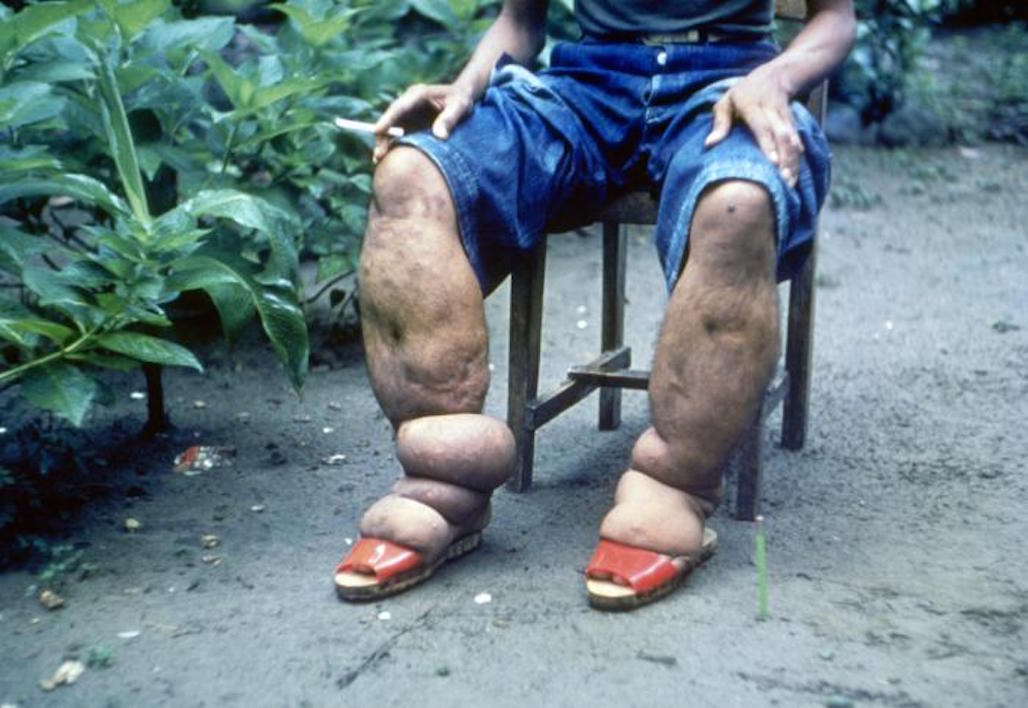Elephantiasis: What Causes This Strange Condition?

A Brazilian man with elephantiasis, a rare condition in which people's limbs become discolored and swell to enormous sizes, was recently featured on the popular Animal Planet show "River Monsters," which often films in tropical, heavily forested locales.
As the name "elephantiasis" implies, the condition causes a person's limb to resemble that of an elephant.
Elephantiasis is actually a complication of a parasitic infection called lymphatic filariasis. More than 120 million people in 73 countries have this infection, according to the Centers for Disease Control and Prevention (CDC).
The worm-like parasites that cause the infection are spread by mosquito bites, said Dr. Amesh Adalja, an infectious-disease specialist and a senior associate at the University of Pittsburgh Medical Center's Center for Health Security.
However, most people who become infected with the parasites do not have any symptoms, Adalja told Live Science. And only some develop long-term symptoms, such as elephantiasis, he said. It's unclear why some people go on to develop elephantiasis and others do not, he added.
Once in the body, the parasite lives in the lymphatic system, according to the CDC. The lymphatic system, which includes the lymph nodes, is a network of tissues and organs in the body that help rid the body of waste. When it is not working properly, lymph (a clear fluid containing white blood cells) can build up. [The 10 Most Diabolical and Disgusting Parasites]
Symptoms develop when the parasites start to alter the lymphatic system, Adalja said. A single mosquito bite is not enough to cause these changes, however. Rather, a person needs to be infected repeatedly with the parasites for symptoms to develop, and each time a person is infected, the damage to the lymphatic system worsens, he said.
Sign up for the Live Science daily newsletter now
Get the world’s most fascinating discoveries delivered straight to your inbox.
The infection can eventually cause the lymphatic vessels to become so dilated that the lymph fluid pools in a region of the person's body — usually, the limbs, breasts or genitalia, he said. This pooling is what causes the massive swelling associated with elephantiasis.
The swelling causes the skin to stretch beyond its normal capabilities, Adalja said. This can severely damage the skin, and ultimately lead to the change in color and texture that occurs in elephantiasis, he said.
Although the infection can be treated in its earlier stages with anti-parasitic medications, it's unclear whether treatment is beneficial once a person has developed elephantiasis, Adalja said.
Rather, the goal is to treat people early, before they have such symptoms, he said. Indeed, campaigns to eradicate the disease from affected areas generally target the entire population, he added.
Though the disease is widespread in tropical areas, it's not something that people in the United States need to worry about because the parasite is not found here, Adalja said.
Follow Sara G. Miller on Twitter @saragmiller. Follow Live Science @livescience, Facebook & Google+. Originally published on Live Science.










